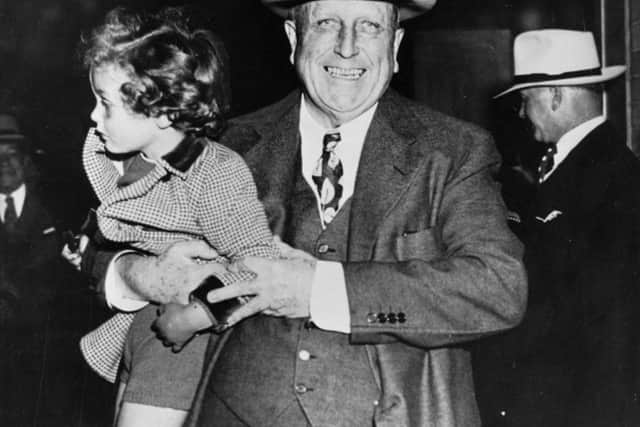Fake news was around long before Brexit and Donald Trump and it still needs to be challenged - Anthony Clavane


I’m not proud of this. I just can’t help myself. Sometimes the allusions are far more interesting than the characters, themes or plots.
Take Phillips’ Joker, for example, which has received mixed reviews but has excited a great deal of comment because of its myriad references to Scorsese’s masterpiece The King of Comedy.
Advertisement
Hide AdAdvertisement
Hide AdIt doesn’t follow that the more quotable the film the more influential it must be. Critics hated The King of Comedy when it came out but, as Joker reveals, 36 years later it has been deemed worthy of an homage by one of the industry’s leading directors.


Christa Ackroyd: Why Extinction Rebellion need to learn from a previous generationJust as watching Todd’s psychological thriller made me re-visit its 1980s’ precursor – which is a far superior movie in every way – so watching Ian Hislop’s Fake News programme on BBC Four this week prompted me to grab my beloved Sweet Smell of Success DVD off a dusty shelf.
There is a minor character in Diner, another classic released around the same time as The King of Comedy, who spends almost all his screen time parroting the astonishing Clifford Odets dialogue in Success. I am that character.
From the moment Burt Lancaster emerges from a cab in an alluringly dangerous New York and coos into the night “I love this dirty town”, I am hooked. Again and again. I think I’ve watched it about 30 times over the years.
Advertisement
Hide AdAdvertisement
Hide AdPolitics, Parliament and why news reporting should stick to the facts - Anthony ClavaneIt has never seemed more relevant than in today’s post-truth era. Its two leading characters are amoral, loathsome media men. Like their hometown they are both seductive and sleazy, revelling in their unethical behaviour and yet remaining hypnotically watchable. Lancaster and Tony Curtis, both transcending their Hollywood pin-up status, give the performances of their lives.
“Match me, Sidney,” snarls Burt to Tony as he holds up an unlit cigarette. When Curtis lets him down he hisses: “You’re dead, son. Get yourself buried.”
This film noir about hard-hitting journalism was, quite possibly, the first Hollywood movie to call out fake news.
During his presidential campaign, Donald Trump popularised the term but, as Hislop’s hour-long documentary explained, it has a long history.
Advertisement
Hide AdAdvertisement
Hide AdIt first appeared, in fact, as a concept in New York itself, in the 1830s, triggered by the new popular press. Lancaster’s dirty town was the birthplace of mass media and The New York Sun enjoyed high circulation figures for stories claiming there was life on the moon. Powerful media moguls like Joseph Pulitzer and William Hearst promoted a sensationalist form of journalism, thinking nothing of whipping up mass hysteria in order to start wars.
Jon Sopel: The media will miss Donald Trump if he’s not re-electedWhen, in 1897, an artist wired Hearst a telegram from Cuba stating there was nothing to report – “Everything is quiet. There is no trouble here. There will be no war. Wish to return” – the publisher replied: “Please remain: you furnish the pictures, I’ll furnish the war.”
A few months later the Spanish-American conflict, which began the latter’s ascendancy as a super power, broke out – thanks to misleading reports of the former’s villainy.
Lanacaster’s portrayal, 60 years later, of the sleazy newspaper columnist J J Hunsecker, was apparently based on Walter Winchell, who for decades was the most powerful gossip columnist in the US. His symbiotic relationship with Curtis’ freelance press agent, a pretty-boy snake in the grass who charms, insults and hustles his way up the greasy pole, thrives during a McCarthyite era where fake news is used to demonise “un-American” types.
Advertisement
Hide AdAdvertisement
Hide AdLike Trump, Hunsecker is a bombastic super-patriot who understands that people are more likely to believe a lie if they want it to be true.
It is easy, in an era of Facebook, Infowars, Russian bots and Deepfakes, to dismiss all powerful people as liars. And to think that all media outlets are happy to publish false stories if it will attract advertisers and improve ratings.
But this would be succumbing to the kind of cynicism that undermines democracy and enables unscrupulous populists to emerge.
And allows the enduring motif for fake news – lies sell – to persist, unchallenged.